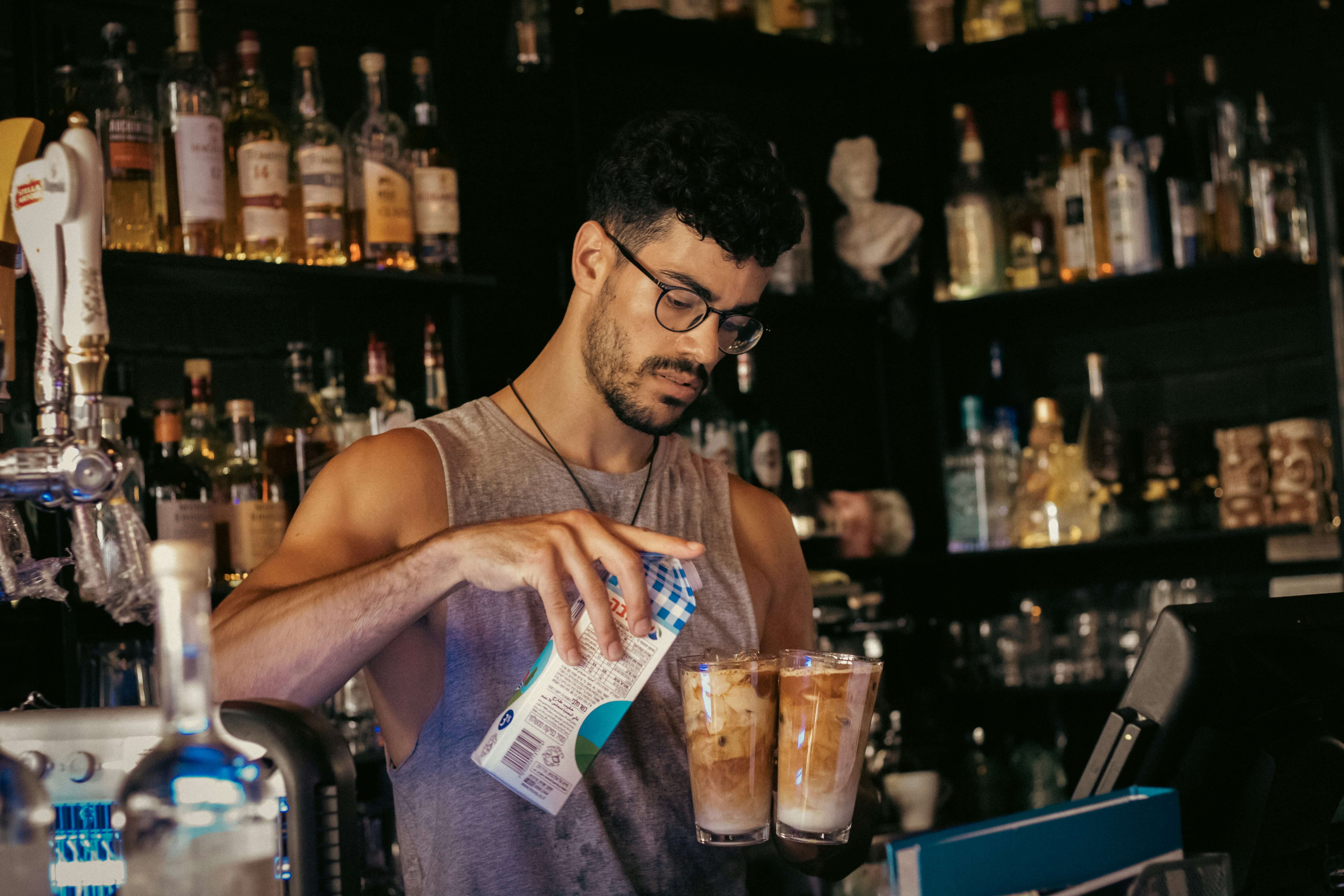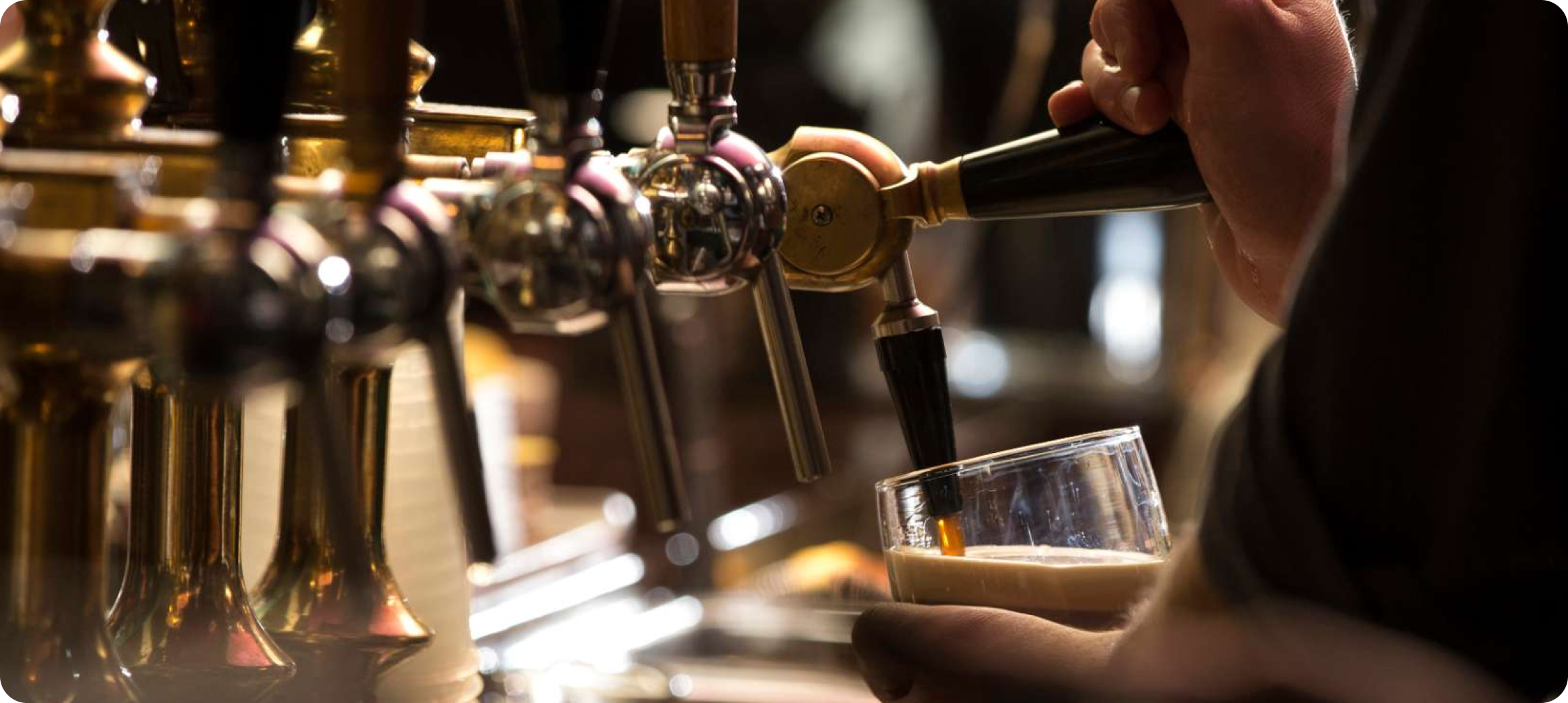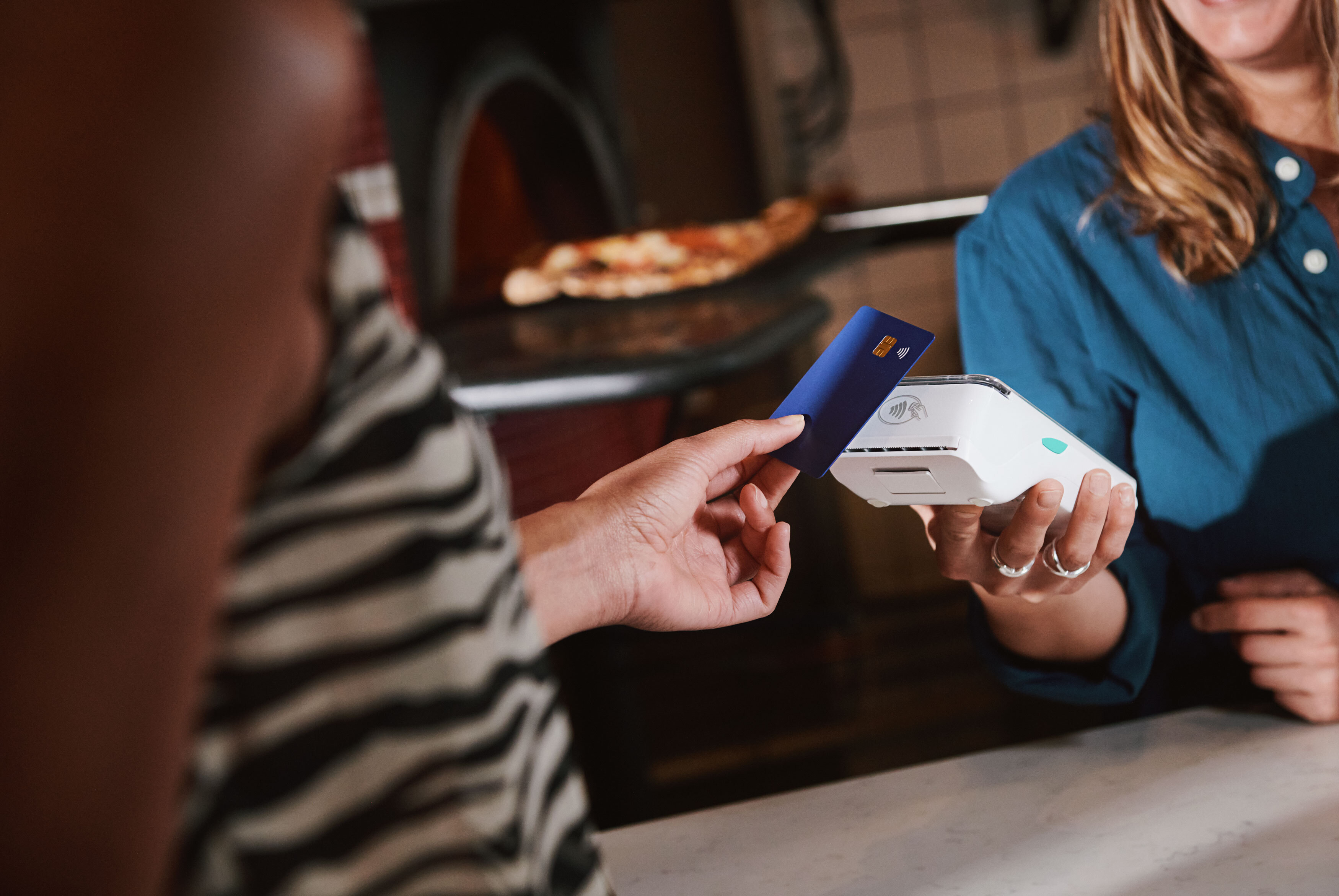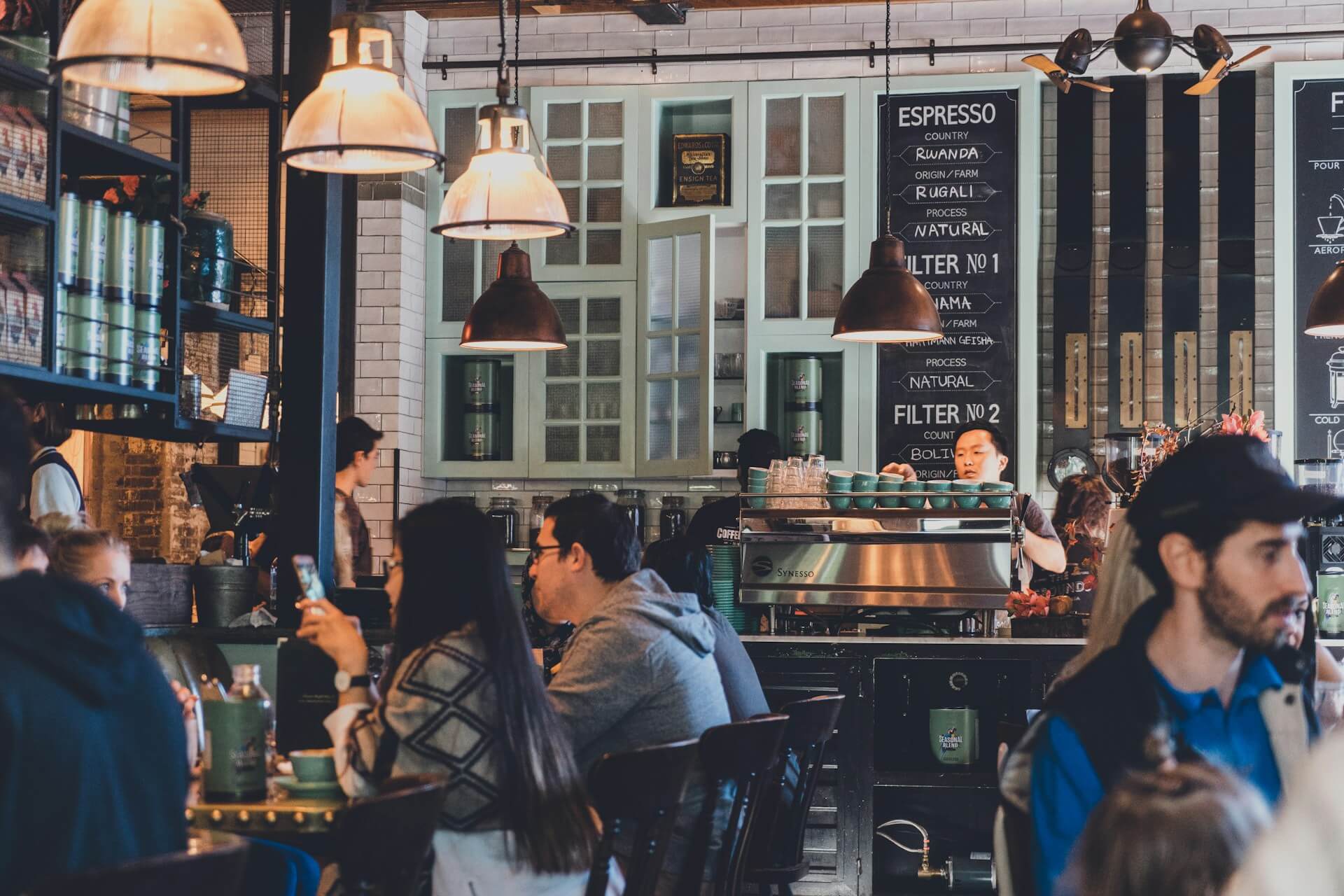Securing an alcohol premises licence is one of the essential first steps for any business that serves alcohol, whether it’s a cosy pub, a trendy bar, or a restaurant aiming to offer more than just great food. The licence isn’t just a legal document, it offers the freedom for enterprises to expand their services – from hosting events to offering a wider selection of drinks and attracting more customers to their business.
An alcohol premises licence application is a key process that businesses need to navigate. To help you on the way, this guide will cover the following:
- What is an alcohol premises licence?
- Why you need an alcohol premises licence
- Types of premises that require a licence
- How to apply for a premises alcohol licence
- Alcohol premises licence application costs
- What venues are exempt from having a premises licence for alcohol?
- Responsibilities of a premises licence holder
- How Dojo can help
- FAQs
The legal lowdown: What is an alcohol premises licence?
An alcohol premises licence in the UK is a legal permit that allows a business to sell alcohol to customers. This licence is typically required for pubs, bars, restaurants, and shops that wish to sell alcohol on their premises.
The non-negotiable: Why you need an alcohol premises licence
An alcohol premises licence is required to legally sell alcohol at a business in the UK. This licence ensures that alcohol is sold responsibly, contributing to public order, safety, and crime prevention.
For establishments that allow customers to bring their own alcohol, it’s important to consider implementing a corkage fee. This fee can help offset the costs associated with serving, handling, and disposing of the brought-in alcohol.
Who’s in the mix: Types of premises that require a licence
Any business that wants to sell alcohol must have a premises alcohol licence, including:
- pubs and bars
- restaurants
- cafes
- event venues
- hotels and guesthouses
- nightclubs
- shops and supermarkets
- cinemas and theatres
- sports clubs and social clubs.
The application blueprint: How to apply for a premises alcohol licence
To complete the alcohol premises licence application form, follow the steps below.
Step 1: Prepare the right documents
- Provide the full address and layout plan of the premises.
- Outline the days and hours when alcohol will be sold – this includes any additional activities such as live music.
- Identify the DPS (Designated Premises Supervisor) responsible for overseeing alcohol sales.
- A signed form from the DPS consenting to their role.
- Prepare a notice to be displayed at the premises and published in a local newspaper, informing the public of the application.
Step 2: Complete the application form
Next, visit the local council’s website to access the official application form – note that conducting market research at this stage can help applicants better understand their target audience and local competition.
This form will guide applicants through providing important details about the premises, business, and how they plan to manage alcohol sales.
Step 3: Submit the application to the local council
Once the form is completed and all documents are ready, submit the application to the local council. This can typically be done online through the council’s website, or by mailing the forms and documents.
There may be an application fee, which can vary based on the rateable value of your premises (more details on this below).
Step 4: Notify responsible authorities
After submitting the application, it's important to notify all the relevant authorities. These include the police, fire service, health and safety authorities, and environmental health.
The local council’s website will list the specific authorities that need to be informed.
Step 5: Display the public notice
The public must be informed of the application by displaying a notice at the premises for at least 28 consecutive days and publishing a notice in a local newspaper within 10 days of submitting the application.
Step 6: Wait for the consultation period
There’s a 28-day consultation period where the public and responsible authorities can share their thoughts or raise objections about the application.
If no objections come up, the licence is usually granted. But if there are any objections, the council might hold a hearing to make a decision on the application.
Step 7: Receive the licence
If the application is approved, the premises alcohol licence will be issued. This licence should be displayed on the premises, and the business can legally start selling alcohol.
The cost breakdown: Alcohol premises licence costs
The cost of obtaining a premises alcohol licence in the UK varies depending on the size and type of the property. The fee structure is based mainly on the premises’ non-domestic rateable value (the value used to calculate business rates), which categorises properties into different bands. Here’s a breakdown of the cost structure:
Fee bands based on rateable value
Below is a breakdown of the cost structure:
| Band | Rateable value | Application fee | Annual fee |
|---|---|---|---|
| A | £0 to £4,300 | £100 | £70 |
| B | £4, 301 to £33,000 | £190 | £180 |
| C | C £33,001 to £87,000 | £315 | £295 |
| D | £87,000 to £125,001 | £450 | £320 |
| E | Over £125,001 | £635 | £350 |
Note: For premises mainly focused on selling alcohol, the application fee for Band D increases to £900, with an annual fee of £640.
For Band E, the application fee rises to £1,905, and the annual fee to £1,050.
It’s worth noting that once the premises licence is granted, an annual fee is required to maintain it – due every year on the anniversary of the licence being issued.
Additional costs for an alcohol licence for premises
In some cases, additional costs might be incurred, such as:
- Hearing costs: If the application is contested and requires a hearing, there may be additional legal or administrative fees.
- Variation fees: If changes are needed to an existing licence, such as extending hours or changing the premises layout, there are separate variation fees.
What premises are exempt from alcohol licence?
While most businesses that sell alcohol in the UK require a premises licence, there are some exemptions and special cases where a full licence might not be necessary.
Exempt premises
- Workplace canteens: If a canteen only serves alcohol to employees, and not to the general public, during their meal breaks, a licence may not be necessary. Alcohol must not be the primary focus, and it should only be available to staff.
- Educational institutions: Schools, colleges, and universities may be exempt when alcohol is sold for educational purposes, such as during a hospitality course. Religious premises: Some religious premises might be exempt if the alcohol is used as part of religious ceremonies, such as wine during communion.
- Trains and aircraft: Licensed activities taking place on trains and aircraft while in transit are generally exempt.
Club premises certificates
For certain types of clubs, such as private members’ clubs, a Club Premises Certificate (CPC) might be more appropriate than a full premises licence. This certificate allows qualifying clubs to supply alcohol to their members and guests without the need for a DPS.
Key points:
- Eligibility: To qualify, a club must be established and conducted in good faith, with at least 25 members, and must have rules regarding membership and operations.
- No need for a DPS: Unlike regular premises licences, a CPC does not require a designated premises supervisor, as the club is collectively responsible for the supply of alcohol.
- Limited to members and guests: The certificate covers the supply of alcohol to members and their guests only, not the general public.
Temporary Event Notices (TENs)
In some cases, a TEN might be used instead of a full alcohol licence for premises. This is ideal for small-scale, occasional events where alcohol will be sold:
- Short-term events: TENs are used for events that last no more than 168 hours (seven days) and involve fewer than 500 people at any one time.
- Application process: The process is much simpler and faster than applying for a premises alcohol licence.
- Limitations: There are caps on the number of TENs that can be applied for annually by the same individual or for the same premises.
Licence holder 101: Responsibilities of a premises licence holder
Legal obligations
- Stick to the licence conditions: All alcohol sales must be conducted within the terms specified in the licence, including sticking to operating hours and any specific conditions imposed by the local council.
- Support the licensing objectives: The licence holder is responsible for promoting the four key licensing objectives: preventing crime and disorder, ensuring public safety, preventing public nuisance, and protecting children from harm.
- Display the alcohol licence premises: The premises licence, or a summary of it, must be prominently displayed so that it’s visible to customers and authorities.
How Dojo can help
Beyond securing premises alcohol licences for your team, it’s crucial to have the right resources to fuel that growth.
We're here to help. Our powerful card machines simplify payment processing, making it effortless for small businesses to thrive and enabling larger enterprises to optimise operations seamlessly across multiple locations. With Dojo, your business can handle growth with ease and efficiency.
Whether you’re just beginning or aiming to expand, our blog is filled with valuable tips and insights to guide you on your journey. Start by exploring how to increase table turnover rates and see the difference Dojo can make.



